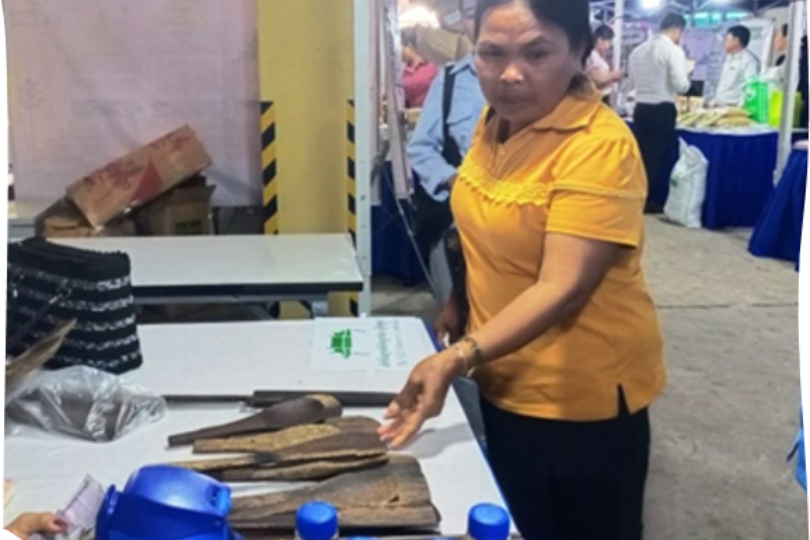In Koh Sralao village, Stung Treng province, 51-year-old farmer Mrs. Loeur Sin has become a quiet yet powerful force for change.
Living along the Mekong River, her community depends on fishing and farming—livelihoods now threatened by shifting weather patterns and environmental degradation.
Once an ordinary farmer, Mrs. Sin transformed her role through active engagement in climate adaptation and sustainable agriculture.
Her leadership journey began with community involvement in climate discussions, where she realized the importance of integrating women’s and youth voices into local decision-making. She became a passionate advocate for gender equality and inclusive development.
With technical support from My Village Organization (MVi) and capacity building from the National Committee for Disaster Management (NCDM), Mrs. Sin embraced climate-smart agriculture (CSA) practices.
These innovations helped her improve crop yields, secure regular income, and reduce her family’s vulnerability to climate shocks.
She’s not alone in this movement. Youth members in the village, inspired by leaders like Sin, have been actively involved in disaster risk reduction (DRR) and climate change adaptation (CCA) initiatives. Together, they collaborate with key partners including CCDM, DCDM, PCDM, and the Royal University of Agriculture (RUA) to strengthen community resilience.
“Being a farmer isn’t just about growing food anymore—it’s about protecting our environment and leading by example,” Mrs. Sin shared. Despite ongoing challenges such as heavy workloads and limited access to climate information, she remains committed to empowering others and building a climate-resilient future.
Her journey reflects the deep impact of community-based leadership and inclusive education. Through practical experience and strategic partnerships, Mrs. Sin is cultivating more than crops—she’s cultivating a legacy of empowerment, equity, and resilience.

